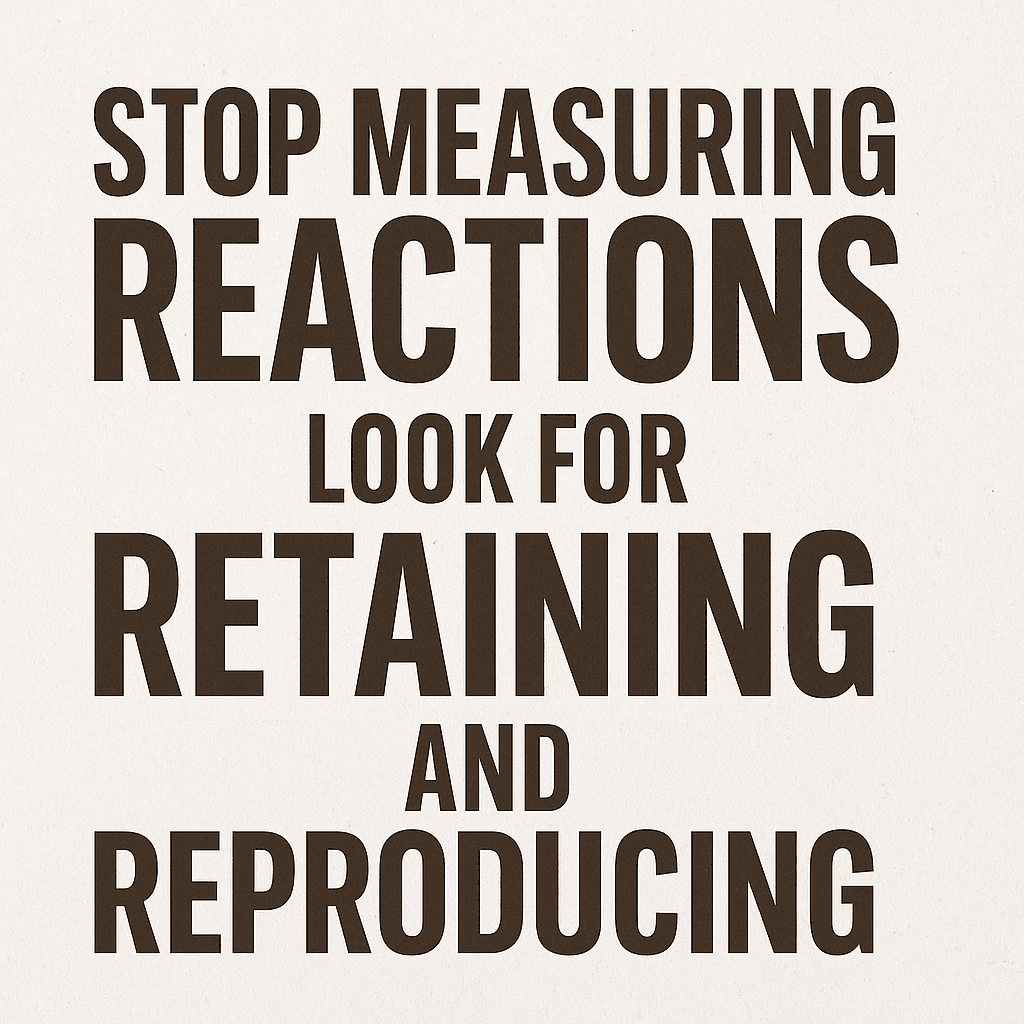
Measuring Maturity
May 27, 2025
One of the most costly mistakes I made early in leadership was equating someone’s reaction with their maturity.
You know the moment. You deliver a word of correction, share a challenging revelation, or press on a pattern that needs shifting—and you’re watching their face like it’s a stock ticker. You see the eye twitch, the sudden stillness, or the shift in tone. And you think to yourself, “They’re not ready. They’re immature. They didn’t take that well.”
But over the years—especially in the fire of discipling leaders, sons, and daughters—I’ve come to realize: reactions are not a true indicator of maturity. Retaining and reproducing are.
Jesus didn’t say, “They will know you’re my disciples by how you emotionally receive hard truth.” He said fruit—visible, lasting fruit—would prove who had really heard, who had retained, and who was walking in truth.
Let’s make this clear:
- Reaction is immediate and emotional.
- Retention is intentional and internal.
- Reproduction is consistent and generational.
When someone is being developed—especially at the Table of Trust—they may not always have the polished, grateful, ‘thank-you-for-correcting-me’ face. But the deeper test is this: do they walk away from that moment and actually let the Word work in them? Do they bring that seed to bear fruit? Do they teach others what they have received?
Maturity isn’t proven in the moment—it’s proven over time.
I’ve seen people cry, shout “amen,” and affirm every word I said, only to forget it within a week and reproduce nothing. I’ve also watched some squirm, push back, and even go silent for days—only to return a month later walking in new levels of freedom, having discipled others in the very word they first resisted.
That’s maturity. Not performance. Not reaction. Not pleasing the leader.
It’s the person who hears, holds, and humbly multiplies what they’ve been given.
Over the years we’ve learned to stop making idols out of good reactions and start honoring those who carry the weight of the Word until it becomes fruit in their lives and others.
If you’re discipling someone, stop obsessing over their face and start watching their footsteps.
Did they retain it?
Did they reproduce it?
Then they got it.
Even if it didn’t look pretty in the moment.
And if you’re the one being developed—don’t beat yourself up for not reacting perfectly. The question is: Are you letting it form Christ in you?
Remember—maturity is not a show. It’s a seed becoming fruit.
Support This Ministry
If this content has blessed you, consider partnering with us to reach more lives with the Gospel.
Partner with Us